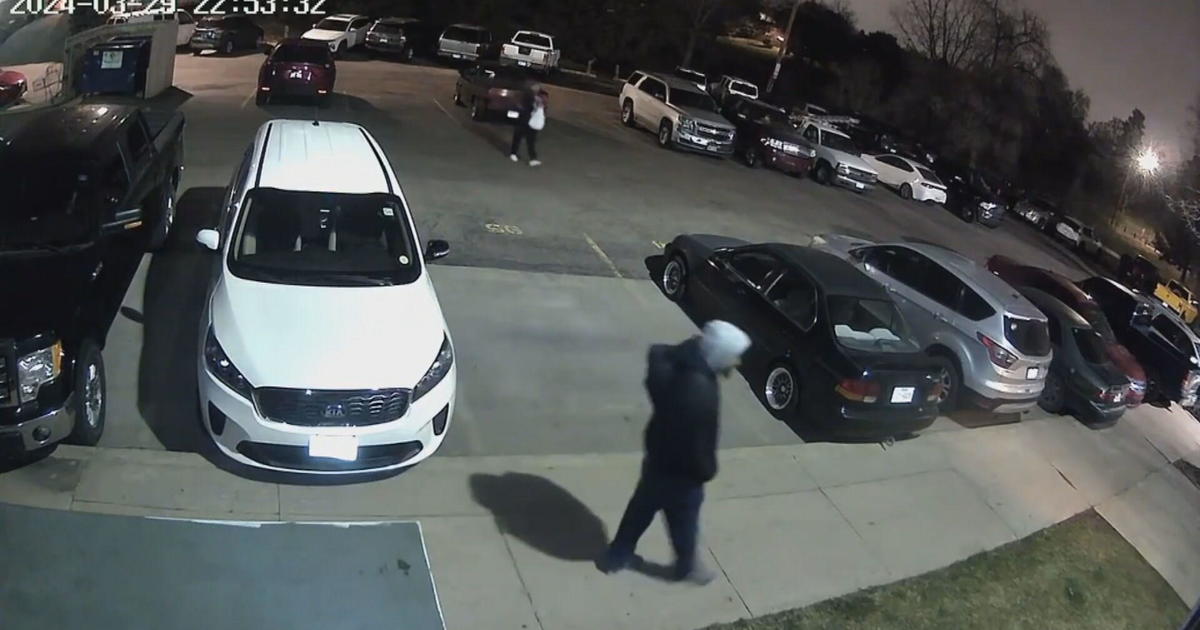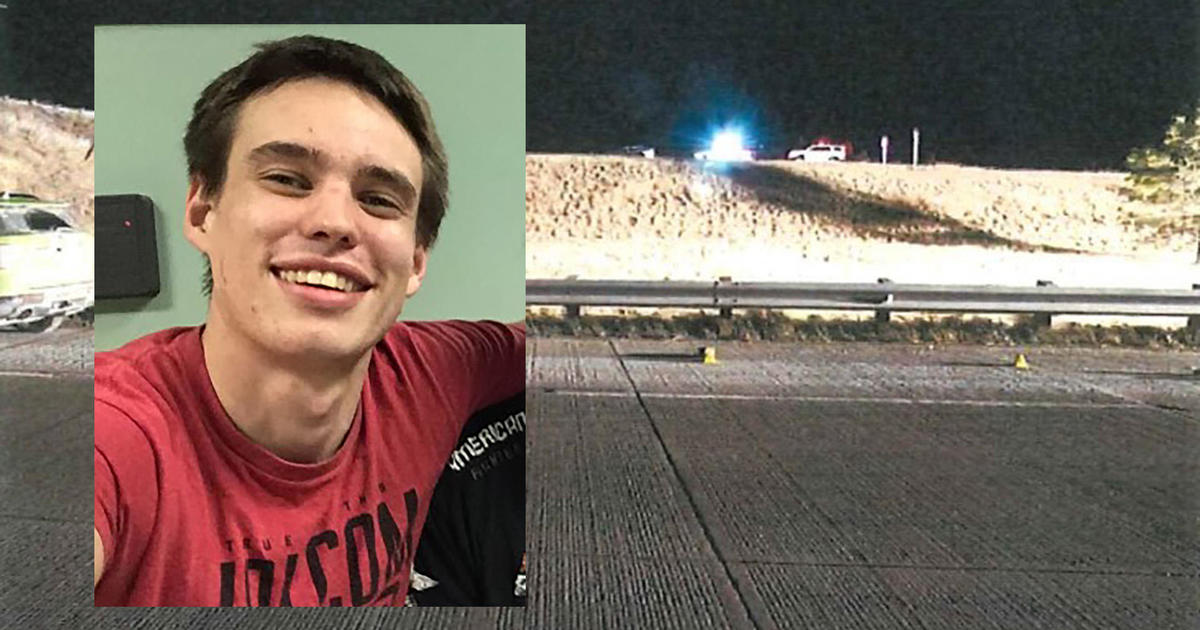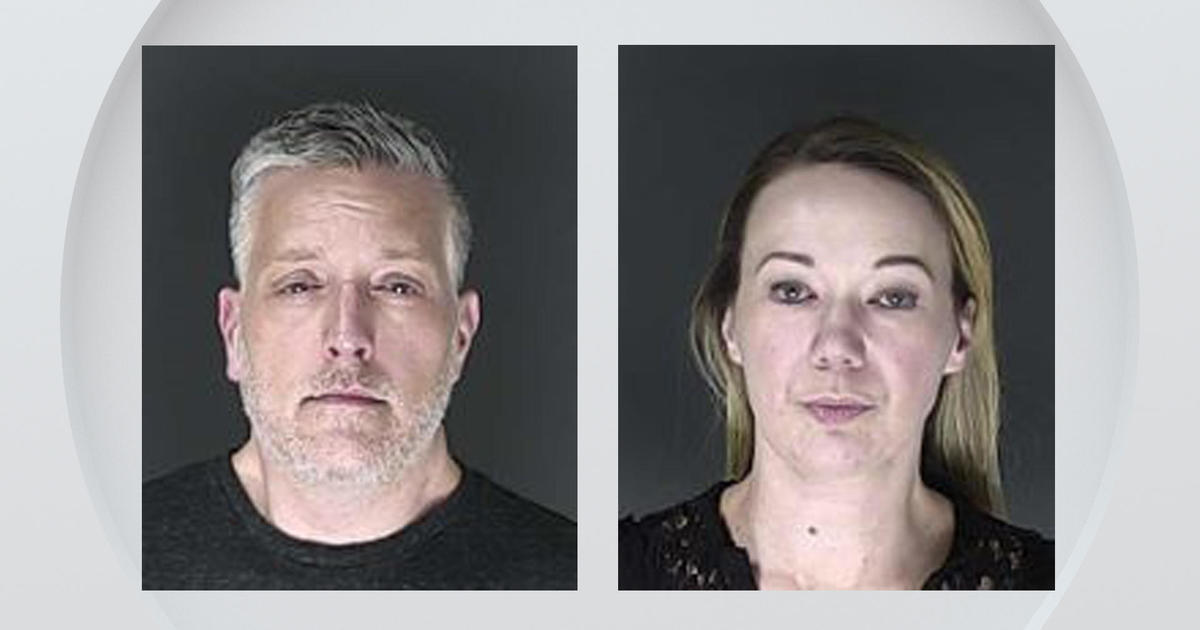U.S., United Nations Helped Aurora Man Now Accused Of Terrorism
AURORA, Colo. (AP) - A man from Uzbekistan that the United States and the United Nations helped relocate to Colorado now faces a terrorism charge.
Jamshid Muhtorov opposed his home country's dictator following a 2005 massacre, endured a brutal detention, and saw his sister arrested on a false murder charge. The 35-year-old fled his country by night dressed as a woman, and the U.S. and the U.N. helped bring him to Aurora in 2007.
Now, he's accused of providing material support and attempting to provide material support to the Islamic Jihad Union. The violent group opposes the Uzbek government and has been designated a foreign terrorist organization by the U.S. State Department.
Authorities arrested Muhtorov in Chicago on Jan. 21, the Denver Post reported Tuesday.
Federal authorities say the Islamic Jihad Union has claimed responsibility for attacks on coalition forces in Afghanistan, including a March 2008 suicide attack on a U.S. base. The group is also blamed for carrying out simultaneous suicide bombings of the U.S. and Israeli embassies and a prosecutor's office in Tashkent, Uzbekistan.
"It is a crime, and has been a crime for many years, to provide material support for a designated terrorist organization, the IJU," said Dean Boyd, spokesman for the U.S. Department of Justice in Washington. "Our job is to enforce the law."
The FBI said Muhtorov communicated with a contact with the IJU by email using code words, asking to be invited to the "wedding." He also told the contact that he was "ready for any task, even with the risk of dying," the FBI said.
Authorities said there was no evidence that Muhtorov planned any attacks within the U.S.
Uzbekistan, which borders Afghanistan to the north, has become even more crucial to the U.S. war effort now that supply routes in Pakistan are closed.
American officials had described Muhtorov as a human rights worker whose activism began while he was trying to make a living in his home city, Jizzak. He ran up against corrupt officials expecting payments, which is common in Uzbekistan, and spoke out.
The U.S. tracked his case. The 2005 Department of State "country report" on Uzbekistan said Muhtorov's sister, Dildora Muhtarova, was arrested on a murder charge and detained. Such tactics, the report said, were aimed at intimidating activists to prevent them from exposing corruption.
A State Department report obtained by The Post said Muhtorov "attempted to defend local farmers against alleged illegal land seizures."
He worked within the confines of dictator Islam Karimov's system for the Ezgulik Human Rights Society, one of two registered groups that were allowed, according to a 2006 U.S. Embassy cable that surfaced through WikiLeaks.
Muhtorov then became director of Ezgulik after previous leaders clashed. But he was frustrated by colleagues reluctant to mount public demonstrations, the cable said. He eventually joined the Free Peasants Party, which favored regime change.
During this time, he worked closely with Human Rights Watch.
Uzbekistan suppressed an uprising in the city of Andijan in 2005, near where Muhtorov worked. Uzbek authorities said 187 people were killed and blamed Islamists for stoking the violence. But witnesses and rights groups said government troops killed hundreds.
In January 2006, Muhtorov was detained with another activist. Uzbek authorities beat him and released him only after he wrote statements promising not to write Internet articles or to oppose the government, according to Human Rights Watch reports.
"His nose was broken. He was covered in blood. And the assailants told him, `This is your last warning.' ... He was scared to go back to his family home, so he went to Tashkent (the capital)," said Hugh Williamson, director of Human Rights Watch's Europe and Central Asia division. "But then he came back again a few days later and was beaten up again. This time, he lost consciousness."
Muhtorov and his family resettled in Aurora, a Denver suburb, and obtained a job as a truck driver.
State records show that as many as 157 Uzbeks have been resettled in Colorado since 2005, and federal officials said the U.N. High Commissioner for Refugees assisted in Muhtorov's resettlement.
Muhtorov's colleagues at the UZ Auto Trans company, where he hauled cars for dealers to destinations across the country, knew that he opposed the Uzbek regime.
"I knew him as a good guy. Praying. He never talked bad about the U.S. Maybe he was angry with the regime back in Uzbekistan," said Ishmael Abdubafour, a former truck driver with the company. "He had the long beard and stuff, but that doesn't mean anything. We see a lot of people who have the beard. He was very gentle."
(© Copyright 2012 The Associated Press. All Rights Reserved. This material may not be published, broadcast, rewritten or redistributed.)



